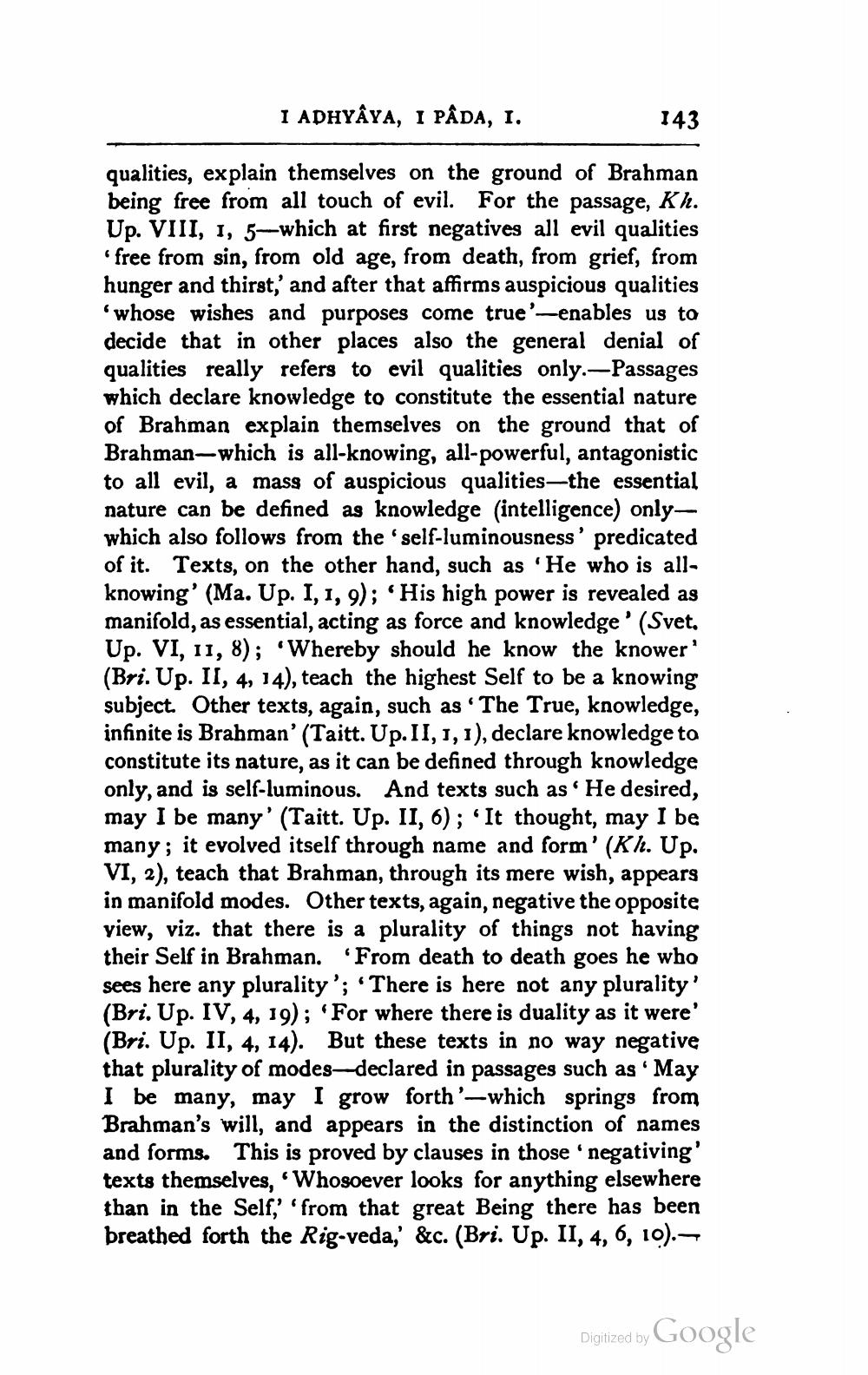________________
I ADHYAYA, I PÂDA, 1.
143
qualities, explain themselves on the ground of Brahman being free from all touch of evil. For the passage, Kh. Up. VIII, 1, 5-which at first negatives all evil qualities • free from sin, from old age, from death, from grief, from hunger and thirst,' and after that affirms auspicious qualities
whose wishes and purposes come true'--enables us to decide that in other places also the general denial of qualities really refers to evil qualities only.—Passages which declare knowledge to constitute the essential nature of Brahman explain themselves on the ground that of Brahman-which is all-knowing, all-powerful, antagonistic to all evil, a mass of auspicious qualities—the essential nature can be defined as knowledge (intelligence) only which also follows from the self-luminousness' predicated of it. Texts, on the other hand, such as 'He who is allknowing' (Ma. Up. I, 1, 9); ‘His high power is revealed as manifold, as essential, acting as force and knowledge' (Svet. Up. VI, 11, 8); "Whereby should he know the knower' (Bri. Up. II, 4, 14), teach the highest Self to be a knowing subject. Other texts, again, such as 'The True, knowledge, infinite is Brahman' (Taitt. Up.II, 1, 1), declare knowledge to constitute its nature, as it can be defined through knowledge only, and is self-luminous. And texts such as He desired, may I be many' (Taitt. Up. II, 6); It thought, may I be many; it evolved itself through name and form' (Kh. Up. VI, 2), teach that Brahman, through its mere wish, appears in manifold modes. Other texts, again, negative the opposite yiew, viz. that there is a plurality of things not having their Self in Brahman. 'From death to death goes he who sees here any plurality'; `There is here not any plurality' (Bri. Up. IV, 4, 19); "For where there is duality as it were' (Bri. Up. II, 4, 14). But these texts in no way negative that plurality of modes-declared in passages such as · May I be many, may I grow forth'-which springs from Brahman's will, and appears in the distinction of names and forms. This is proved by clauses in those 'negativing' texts themselves, 'Whosoever looks for anything elsewhere than in the Self,' 'from that great Being there has been breathed forth the Rig-veda,' &c. (Bri. Up. II, 4, 6, 10).
Digitized by Google
Digitized by




